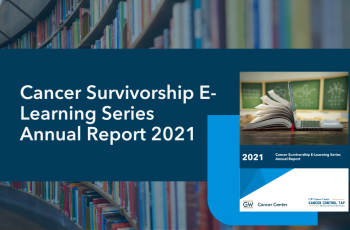This work was supported by Cooperative Agreement #NU58DP007539-01 from the Centers for Disease Control and Prevention (CDC).
Articles, Reports, Briefs
In March 2021, the American Cancer Society (ACS) created the ACS National Consortium to establish a collective national response to the detrimental impact of the COVID-19 pandemic on cancer screening and care. The consortium members met to identify, discuss, and agree on consensus recommendations…
CDC conducted a project to learn about the best ways to increase the number of ovarian cancer patients who are treated by a gynecologic oncologist. This project was done to help more women with ovarian cancer get the recommended treatment.
The National Cancer Policy Forum of the National Academies of Sciences, Engineering, and Medicine convened a virtual workshop in March 2021 to examine the existing evidence base on how the Patient Protection and Affordable Care Act (ACA) has altered the landscape of cancer prevention and care…
This web page from the National Cancer Institute provides up-to-date information about COVID-19 for those affected by cancer.
The Consortium for Cancer Implementation Science (CCIS) focuses on cancer control priorities, cross-collaboration, and innovative solutions in implementation science (IS).
The Cancer Survivorship E-Learning Series (E-Learning Series) is a self-paced, 10-module continuing education program available to health care professionals at no cost. Data in this report were collected from learners who completed at least one E-Learning Series module between January 1, 2021, and…
The purpose of this report from the National Network of Public Health Institutes is to synthesize recently published literature and highlight tangible recommendations regarding the core components needed to build a modern and more effective U.S. public health system capable of protecting and…
In this report, the authors provide comprehensive and up-to-date US data on disparities in cancer occurrence, major risk factors, and access to and utilization of preventive measures and screening by sociodemographic characteristics.
The objective of the NCI/CDC State Cancer Profiles Web site is to provide a system to characterize the cancer burden in a standardized manner in order to motivate action, integrate surveillance into cancer control planning, characterize areas and demographic groups, and expose health disparities.
This report from UICC provides an in-depth look at how health inequity can be addressed through advocacy and action.
